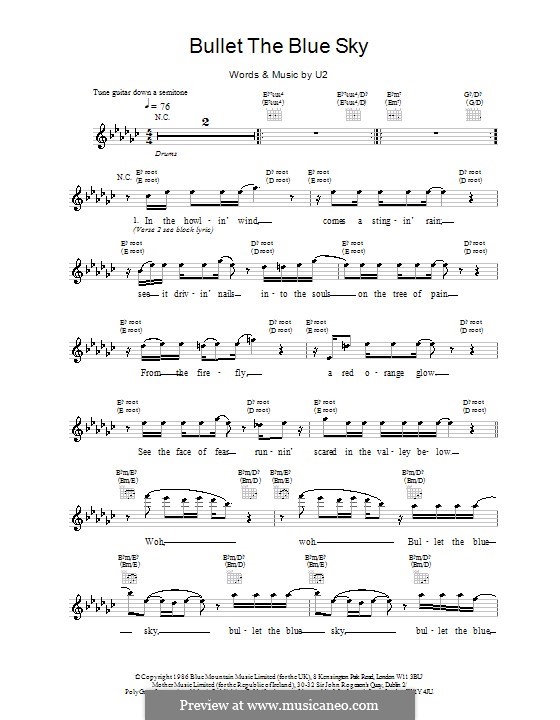

It’s not a criticism you can level at, say, “Sunday Bloody Sunday. There’s the blossoming of his liberal outrage in “Bullet the Blue Sky” and “Mothers of the Disappeared,” which were inspired by a trip to South America but which are so mired in hammy imagery and Jim Morrison-posturing-“So how does it feel to see the sky ripped open?/To see the rain through a gaping wound/Pelting the women and children/Who run into the arms of America?”-that he completely misses the polemical power of addressing actual pain in actual countries with actual people. But Bono clearly never met a mixed metaphor he didn’t like: How exactly can “stinging rain” drive nails into “souls on a tree of pain,” even figuratively? Every now and then, though, the guy drops a gem: Has romantic anxiety ever been captured more accurately and succinctly than in the refrain, “I can’t live with or without you”?Īs for his politics, Bono is often accused of being sanctimonious, but on The J oshua Tree he actually sounds detached. The tropes are inoffensive, since even Dylan rhymes “fire” and “desire,” and the clichés are forgivable, since rain and tears are pretty similar (though he does sing about rain an awful lot for an album that’s named after a desert). The delay effects on the Edge’s guitar create intentionally artificial-sounding echoes like Kevin Shields, who recently said he doesn’t play guitar so much as use it to manufacture sound and then play that sound, these guys find beauty in the manufactured. The rhythm section is metronome-tight, grounding the wraithlike guitar work and the wild-card vocals. This is largely thanks to the production work of Brian Eno and Daniel Lanois, who took Phil Spector’s “Wall of Sound” aesthetic and updated it for the Reagan era. The Joshua Tree might not be as magnificent as the masses claim, but it’s not without its share of magnificence. Take a look at the elaborate reissues that Island Records is releasing this week: four new versions-remastered, remastered and deluxe, remastered and deluxe with a DVD, and remastered on vinyl-of an album that 20-something million people already own that will probably still sell like hotcakes. The album lacks the dynamics and energy of U2’s punkier War and more experimental Achtung Baby, both of which are more engrossing listens, but it’s not surprising that the album is so adored. It was also covered by Richard Cheese, Absinthè, P.O.D., Tunnel Fishin and other artists. With an opener like that, there’s nowhere to go but down, and the rest of The Joshua Tree-even the super-hits “I Still Haven’t Found What I’m Looking For” and “With or Without You”-never comes close to reaching the grandeur of its opening salvo. U2 originally released Bullet the Blue Sky written by Adam Clayton, The Edge, Bono and Larry Mullen and U2 released it on the album The Joshua Tree in 1987.

I’ll spare you a garden-variety, dancing-to-architecture description of the delay-heavy guitars and absorbing percussion work you’ve heard this song a million times and it’s well worth hearing a million more. U2’s “Where the Streets Have No Name” is one of the greatest works in music history-one of only a handful of pop songs that reveals that a four-piece band can compose a sonic aura as sweeping and impressive as a symphony.


 0 kommentar(er)
0 kommentar(er)
